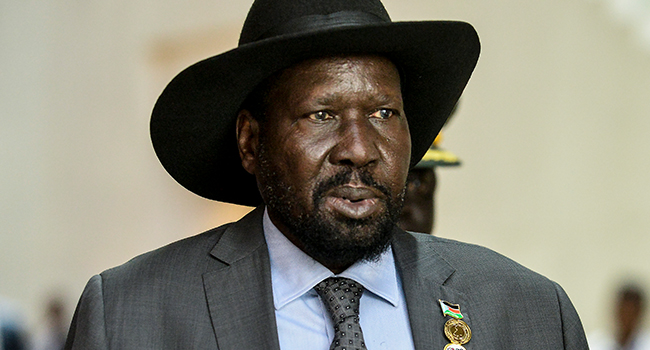South Sudan’s journey towards peace has been a long and difficult one. Decades of civil war have left the country devastated, with millions of people displaced, and countless others killed or maimed. However, in 2018, a glimmer of hope appeared when the government and opposition leaders signed a peace deal aimed at ending the conflict and paving the way for a new era of stability.
The 2018 peace agreement was a significant milestone for South Sudan, but unfortunately, progress towards lasting peace has been slow. The recent appointment of Chol Thon Balok as defense minister by South Sudan’s President Salva Kiir has raised serious questions about the country’s commitment to the peace process.
The appointment of a defense minister by President Kiir has caused controversy, as it was a position that should have been selected by the party of opposition leader Riek Machar. Many South Sudanese have expressed their disappointment and frustration with the president’s decision, arguing that it shows a lack of commitment to the peace deal and could lead to renewed violence.
This appointment raises a question mark: does President Kiir truly care about the peace process, or is he more concerned with consolidating power within his own party? Some experts fear that this move may be a sign that Kiir is looking to tighten his grip on the government and undermine the democratic process in South Sudan.
The appointment of Chol Thon Balok as defense minister could be viewed as a direct violation of the 2018 peace agreement. The deal specifically stated that the president should not hold any ministerial positions, and by appointing himself as defense minister, President Kiir has clearly disregarded this provision.
This move has undermined the trust between the different parties involved in the peace process, which is a key element of the agreement. Without trust, the chances of the peace agreement being successful are slim.
With so much at stake, the question is: why would President Kiir risk derailing the peace process in this way?
The answer may lie in the fact that the president has been under pressure from hardliners within his own party, who are opposed to the peace deal. These individuals are reportedly pushing for a return to the status quo, where they can maintain their grip on power without having to make any concessions to the opposition.
This approach is unlikely to lead to lasting peace and stability in South Sudan. The only way to achieve these goals is through mutual respect, dialogue, and compromise. By appointing a defense minister from his own party, President Kiir is sending a message that he is not interested in working collaboratively with the opposition, which could lead to a breakdown in communication and a return to violence.
The international community has a responsibility to hold President Kiir accountable for his actions and ensure that the peace agreement is respected. The United Nations and regional organizations should work together to put pressure on the president to reverse his decision and respect the peace deal. Sanctions could be imposed on those who undermine the peace process and the stability of the country.
The appointment of Chol Thon Balok as defense minister by President Kiir has raised questions about South Sudan’s commitment to the peace process.
This move undermines the trust between different parties, and raises concerns about President Kiir’s intentions. It is imperative that the international community takes action to ensure that the peace agreement is upheld and that the welfare of the people of South Sudan remains a top priority.
Image Credit: MICHAEL TEWELDE / AFP




